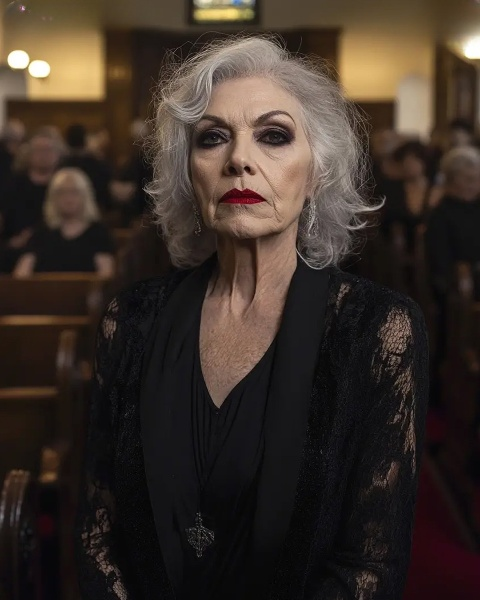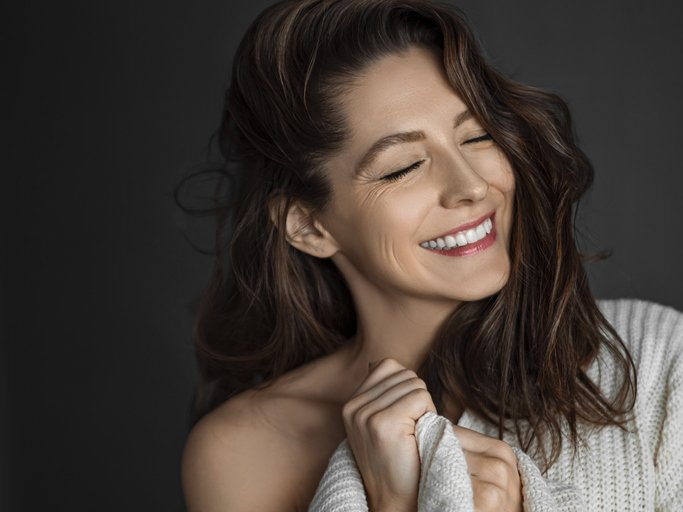This past Sunday, an unexpected situation left me feeling uncertain. My friend arrived at church wearing bold makeup—dark eyeshadow, thick eyeliner, and bright red lipstick. In the quiet and solemn atmosphere of the sanctuary, her look stood out. After the service, I gently suggested she might consider a more subdued look for church. Her response was calm but firm: “I believe everyone has the right to express themselves, even here.” Her words made me pause. Did I overstep? Was it wrong to say anything?
This experience stirred up deeper questions. Is there a “right” way to present oneself in church? Should makeup be part of our worship attire? And what does Scripture say about modesty, self-expression, and beauty?
Balancing Beauty and Modesty: What the Bible Says

The Bible doesn’t explicitly address makeup, but it emphasizes modesty, humility, and inner beauty. In 1 Timothy 2:9–10, Paul writes, “I want women to dress modestly, with decency and propriety… not with elaborate hairstyles or gold or pearls or expensive clothes.” The focus here is on inner qualities rather than outward adornment.
Similarly, in 1 Peter 3:3–4, we are encouraged to cultivate “the unfading beauty of a gentle and quiet spirit, which is of great worth in God’s sight.” These verses suggest that our appearance—whether fashion or makeup—should reflect a heart focused on God, not on outward admiration. It’s not about prohibiting beauty but about centering it on humility and a genuine heart for worship.
Makeup Today: Confidence Booster or Idol of Self-Worth?
For many people, makeup is more than just a beauty product; it’s a confidence booster. But there’s a difference between using makeup to feel polished and relying on it to feel complete. Makeup can be a way to enhance natural beauty or, in some cases, mask insecurities. The question we might ask ourselves is, are we using it to honor God’s creation, or are we hiding behind it?
Using makeup responsibly and thoughtfully can align with honoring ourselves as God’s handiwork. However, when makeup becomes something we feel we need to feel worthy, it may be turning into an idol. The goal is to use it in a way that reflects our authentic selves without letting it define our self-worth.
Church as a Place for Reflection, Not a Fashion Showcase
Over the years, church dress codes have become more relaxed, but the principle of respect for sacred spaces remains. In 1 Timothy 2:9, Paul’s words about dressing with propriety extend beyond clothing to encompass all elements of appearance, including makeup. A church service is a time to connect with God and our community, not to draw attention to ourselves. Overly bold makeup, like extravagant clothing, can unintentionally distract from worship.
The aim is to strike a balance that respects both personal style and the church environment. Subtle, natural makeup allows self-expression without overshadowing the reverence of worship. In this way, we respect the atmosphere of the sanctuary while honoring our personal expression.
When Is It Appropriate to Address Someone’s Appearance?

My friend’s response was enlightening. She was right in saying that self-expression is personal, and intentions matter. But so does timing. Unless someone’s appearance disrupts the community or detracts from the service, it may not be necessary to bring it up. Even well-intentioned feedback can come across as judgmental, possibly causing division rather than support.
However, if handled with kindness, these conversations can be constructive. Instead of imposing our views, it’s often better to seek to understand the other person’s perspective. Church communities are diverse, and fostering a welcoming environment involves respecting individuality while embracing common values.
Embracing Inner Beauty Over Outward Appearance
In a society that places a high value on physical beauty, the Bible reminds us that God values the heart above all else. Proverbs 31:30 beautifully states, “Charm is deceptive, and beauty is fleeting; but a woman who fears the Lord is to be praised.” This verse highlights the temporary nature of physical appearance and the enduring value of a heart aligned with God’s love and purpose.
For those who find self-worth through makeup, it may be worth reflecting on whether that outer layer is a shield or an enhancement. God’s vision of beauty is based on character, kindness, and compassion—qualities that radiate from within. Remembering this can help us maintain a healthy balance, valuing inner beauty over fleeting trends.
A Practical Guide to Honoring God Through Our Appearance

For those who include makeup as part of their routine, there are ways to ensure that our appearance aligns with our faith. Here are a few tips to help make mindful choices that honor both personal expression and modesty:
- Keep it Simple: A touch of foundation, natural eyeshadow, and soft lipstick can enhance features without drawing too much attention. A more understated look allows personal expression while respecting the tone of worship.
- Reflect on Your Intentions: Ask yourself, “Am I wearing makeup to feel confident, or am I dependent on it to feel valued?” If it’s the latter, you might explore ways to cultivate inner confidence that doesn’t rely on cosmetics.
- Consider the Context: Think about whether your appearance is suitable for the occasion. In a church setting, simplicity may help you focus on worship rather than on what others might think.
- Prioritize Inner Qualities: Spend time nurturing virtues like kindness, patience, and love. These qualities create a beauty that shines far beyond physical appearance.
Final Thoughts: Embracing Self-Expression with Modesty in Mind
In a world that often equates worth with appearance, it’s easy to get caught up in the allure of outer beauty. However, as believers, we’re called to look beyond the surface and embrace the lasting beauty of a gentle and humble spirit. The Bible doesn’t condemn makeup; it encourages us to nurture inner qualities that reflect God’s love and grace.
So, was I wrong to comment on my friend’s makeup? Perhaps I could have approached it with more understanding of her perspective. This experience reminds me that while sharing our opinions can be helpful, doing so with grace and respect is crucial.
In the end, each of us has the freedom to express ourselves uniquely. As long as our intentions align with humility and respect, there’s room for personal expression—even in sacred spaces. Let’s remember that true beauty, the kind that honors God, comes from a heart centered on love, kindness, and authenticity.


